Technical Partners
The TEST program is carried out by a consortium of international technical and financial institutions and partners under the support of the nine governments of the Niger Basin Authority (NBA) member countries.

The United Nations Industrial Development Organization (UNIDO)
The United Nations Industrial Development Organization (Unido) Is The Specialized Agency Of The United Nations Charged With Promoting Industrial Development For Poverty Reduction And Sustainable Development Internationally.
In Line With The Sustainable Development Goals, Unido’s 3 Strategic Priorities Are:
Poverty Reduction Through Productive Activities
Trade Capacity Building Through Investment And Technology Promotion
Provision Of Technical Assistance Programmes To Enable Industrial Development That Meets Sustainable Development Criteria.
Since 2009, Unido Has Launched An Initiative For Decarbonized Industrialization. This Programme Aims To Achieve The Transition Of Existing Industrial Structures To Make Them “Greener” (Renewable Energy, Energy Efficiency, Recycling, Limitation Of Resource Waste, Reduction Of Carbon Emissions) And More Environmentally Friendly.
Unido Currently Has 168 Member States.
In Line With The Sustainable Development Goals, Unido’s 3 Strategic Priorities Are:
Since 2009, Unido Has Launched An Initiative For Decarbonized Industrialization. This Programme Aims To Achieve The Transition Of Existing Industrial Structures To Make Them “Greener” (Renewable Energy, Energy Efficiency, Recycling, Limitation Of Resource Waste, Reduction Of Carbon Emissions) And More Environmentally Friendly.
Unido Currently Has 168 Member States.

The Global Environment Facility (GEF)
The Global Environment Facility (Gef) Is A Financial Organization That Works To Preserve The Environment. Created In 1991 By The World Bank, The United Nations Development Programme (Undp) And The United Nations Environment Programme (Unep), It Brings Together 183 Member States, 32 Of Which Provide The Funds Necessary For Its Mission. In Its Role As A Donor, It Supports Environmental Projects Dedicated To The Fight Against Global Warming, Soil Degradation, Water Pollution, Or More Generally In Favor Of Sustainable Development And The Protection Of Biodiversity.
In Particular, It Provides Financial Support To Projects That Help Developing Countries Achieve The Objectives Of The United Nations Framework Convention On Climate Change, The Convention On Biological Diversity, The United Nations Convention To Combat Desertification And The Stockholm Convention On Persistent Organic Pollutants. Within It, The Least Developed Countries Fund Targets The Specific Needs Of These States In The Face Of Climate Change, Including Through National Programs To Adapt To Global Warming.
In Particular, It Provides Financial Support To Projects That Help Developing Countries Achieve The Objectives Of The United Nations Framework Convention On Climate Change, The Convention On Biological Diversity, The United Nations Convention To Combat Desertification And The Stockholm Convention On Persistent Organic Pollutants. Within It, The Least Developed Countries Fund Targets The Specific Needs Of These States In The Face Of Climate Change, Including Through National Programs To Adapt To Global Warming.

The United Nations Development Programme (UNDP)
The United Nations Development Programme (UNDP) is a leading multilateral development organization working to eradicate poverty and reduce inequality and exclusion. Operating in 177 countries and territories, UNDP provides a global perspective and local insight to help empower lives and build resilient nations.
UNDP’s goal is to help countries strengthen their institutional capacities and develop and share solutions to the following challenges
Democratic governance
Crisis prevention and recovery
Environment and energy for sustainable development
Climate and adaptation.
UNDP helps developing countries mobilize and use aid effectively. In all its activities, it promotes the protection of human rights, capacity development and the empowerment of women.
UNDP’s goal is to help countries strengthen their institutional capacities and develop and share solutions to the following challenges
UNDP helps developing countries mobilize and use aid effectively. In all its activities, it promotes the protection of human rights, capacity development and the empowerment of women.

The United Nations Environment Programme (UNEP)
The United Nations Environment Programme (UNEP) is the world’s leading authority on the environment. The organization sets the global environmental agenda, promotes the coherent implementation of the environmental dimension of sustainable development within the United Nations system and serves as an advocate for the global environment.
Its mission is to provide leadership and encourage partnership in caring for the environment by setting an example, informing and enabling nations and peoples to improve their quality of life without compromising that of future generations.
Its work is carried out by various regional offices, liaison offices, field offices, divisions, and a growing network of collaborative centers of excellence. Its work programme is organized around six strategic areas: climate change, disasters and conflicts, ecosystem management, environmental governance, toxic substances and resource use.
Its mission is to provide leadership and encourage partnership in caring for the environment by setting an example, informing and enabling nations and peoples to improve their quality of life without compromising that of future generations.
Its work is carried out by various regional offices, liaison offices, field offices, divisions, and a growing network of collaborative centers of excellence. Its work programme is organized around six strategic areas: climate change, disasters and conflicts, ecosystem management, environmental governance, toxic substances and resource use.

The Niger Basin Authority (NBA)
The Niger Basin Authority is an intergovernmental organization in West and Central Africa that aims to foster cooperation in the management and development of the resources of the Niger River Basin. It is formed by nine countries in West and Central Africa: Benin, Burkina Faso, Cameroon, Chad, Côte d’Ivoire, Guinea, Mali, Niger and Nigeria.
While focusing on water and hydropower resources, NBA nations use the organization to harmonize the development of member nations’ energy, agriculture, forestry, transport, communications and industrial resources.
The NBA has been working to create an “integrated basin development plan”, with a particular focus on cross-border projects. Although not the original focus of the NBA, environmental protection against the threats of desertification, deforestation and pollution of rivers by agriculture and industry has become a major theme of its work.
While focusing on water and hydropower resources, NBA nations use the organization to harmonize the development of member nations’ energy, agriculture, forestry, transport, communications and industrial resources.
The NBA has been working to create an “integrated basin development plan”, with a particular focus on cross-border projects. Although not the original focus of the NBA, environmental protection against the threats of desertification, deforestation and pollution of rivers by agriculture and industry has become a major theme of its work.

The Observatory For The Sahara And The Sahel (OSS)
Created in 1992 and based in Tunis, the Sahara and Sahel Observatory (OSS) is an international organization with an African vocation. It operates in the arid, semi-arid and dry sub-humid areas of the Sahel-Saharan region. Its members include 26 African countries, 7 non-African countries, 13 organizations (representative organizations from West, East and North Africa, United Nations organizations) and 3 non-governmental organizations.
The OSS’s mission is to support its African member countries in the sustainable management of their natural resources in a context of particularly adverse climate change.
To this end, it is involved in:
The implementation of multilateral agreements on desertification, biodiversity and climate change
Promoting regional and international initiatives related to Africa’s environmental challenges
The definition of concepts and harmonization of approaches and methodologies related to sustainable land and water management (SLWM) and climate change.
The Observatory necessarily relies on knowledge transfer, capacity building and awareness raising of all stakeholders. OSS activities and projects are financed respectively by voluntary contributions from member countries, and by grants and donations from development partners. With effective governance mechanisms and a competent, multicultural and multidisciplinary team, OSS makes a high value-added contribution to the international and African institutional landscape.
The OSS’s mission is to support its African member countries in the sustainable management of their natural resources in a context of particularly adverse climate change.
To this end, it is involved in:
The Observatory necessarily relies on knowledge transfer, capacity building and awareness raising of all stakeholders. OSS activities and projects are financed respectively by voluntary contributions from member countries, and by grants and donations from development partners. With effective governance mechanisms and a competent, multicultural and multidisciplinary team, OSS makes a high value-added contribution to the international and African institutional landscape.

The United Nations Educational, Scientific And Cultural Organization (UNESCO)
UNESCO’s ambition is to build peace through education, science, culture and communication.
It pursues its action through five major programmes:
Improving education throughout the world
Building scientific and technological capacity for development
Promoting social and human sciences
Protecting and respecting the specificities of each culture
Communication and information, and thus the free flow of ideas and the sharing of knowledge.
UNESCO’s programmes contribute to the achievement of the sustainable development goals defined in the 2030 Agenda adopted by the United Nations General Assembly in 2015.
It pursues its action through five major programmes:
UNESCO’s programmes contribute to the achievement of the sustainable development goals defined in the 2030 Agenda adopted by the United Nations General Assembly in 2015.








